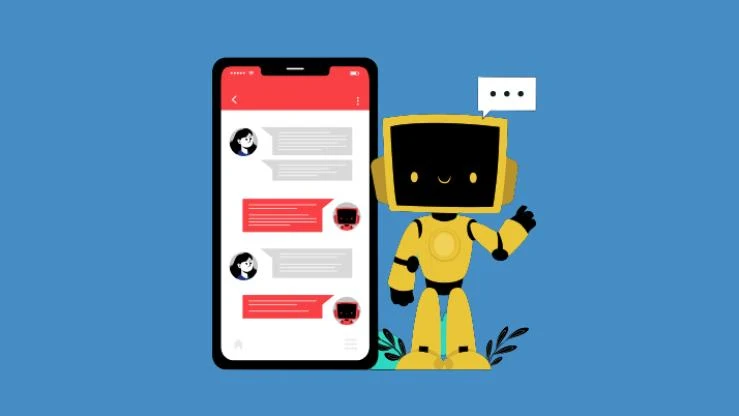OpenAI has recently introduced GPTBot, a web crawler designed to enhance future artificial intelligence models such as GPT-4 and GPT-5. This system, identifiable by its user agent token and full user-agent string, actively seeks out data across the web to improve the accuracy, capabilities, and safety of AI technology.
GPTBot has been developed to adhere to strict guidelines, filtering out paywall-restricted sources, content that violates OpenAI's policies, and any sources that gather personally identifiable information. The inclusion of GPTBot's data gathering efforts has the potential to significantly enhance AI models.
OpenAI is inviting website administrators to contribute to this data pool by allowing GPTBot access to their sites. However, this is not a universal mandate. OpenAI respects the autonomy of web admins and provides them with the choice to grant or restrict GPTBot access to their websites.
If web owners wish to restrict GPTBot from accessing their site, they can do so by modifying their robots.txt file. For complete denial of access, the following can be added:
User-agent: GPTBot
Disallow: /
Alternatively, for partial access, website owners can customize the directories that GPTBot is allowed to access by adding the following to their robots.txt file:
User-agent: GPTBot
Allow: /directory-1/
Disallow: /directory-2/
The technical operations of GPTBot involve calls made to websites originating from IP address ranges documented on OpenAI's website. This transparency provides web admins with a clear understanding of the traffic source on their sites.
Allowing or disallowing access to the GPTBot web crawler carries implications for data privacy, security, and contributions to AI advancement. The ethical and legal concerns surrounding GPTBot's use of scraped web data have sparked debates within the tech community. Some argue that while GPTBot identifies itself and can be blocked via robots.txt, there may be limited benefits compared to search engine crawlers.
There are concerns about copyrighted content being used without proper attribution. Questions also arise about how GPTBot handles licensed media like images, videos, and music found on websites. There's a potential risk of copyright infringement if such media is used in AI model training. Some experts express concerns that crawler-generated data could potentially degrade AI models if AI-generated content is inadvertently fed back into the training process.
Opinions are divided regarding the use of public web data by OpenAI. While some view it as akin to an individual learning from online content, others argue that if OpenAI monetizes web data for commercial gain, it should share the profits with content creators.
In conclusion, GPTBot has ignited complex discussions about ownership, fair use, and incentives for web content creators. While following robots.txt is a step in the right direction, the tech community seeks more transparency about how their data will be utilized as AI technology continues to rapidly advance.
User agent token: GPTBot
Full user-agent string: Mozilla/5.0 AppleWebKit/537.36 (KHTML, like Gecko; compatible; GPTBot/1.0; +https://openai.com/gptbot)GPTBot has been developed to adhere to strict guidelines, filtering out paywall-restricted sources, content that violates OpenAI's policies, and any sources that gather personally identifiable information. The inclusion of GPTBot's data gathering efforts has the potential to significantly enhance AI models.
OpenAI is inviting website administrators to contribute to this data pool by allowing GPTBot access to their sites. However, this is not a universal mandate. OpenAI respects the autonomy of web admins and provides them with the choice to grant or restrict GPTBot access to their websites.
If web owners wish to restrict GPTBot from accessing their site, they can do so by modifying their robots.txt file. For complete denial of access, the following can be added:
User-agent: GPTBot
Disallow: /
Alternatively, for partial access, website owners can customize the directories that GPTBot is allowed to access by adding the following to their robots.txt file:
User-agent: GPTBot
Allow: /directory-1/
Disallow: /directory-2/
The technical operations of GPTBot involve calls made to websites originating from IP address ranges documented on OpenAI's website. This transparency provides web admins with a clear understanding of the traffic source on their sites.
Allowing or disallowing access to the GPTBot web crawler carries implications for data privacy, security, and contributions to AI advancement. The ethical and legal concerns surrounding GPTBot's use of scraped web data have sparked debates within the tech community. Some argue that while GPTBot identifies itself and can be blocked via robots.txt, there may be limited benefits compared to search engine crawlers.
There are concerns about copyrighted content being used without proper attribution. Questions also arise about how GPTBot handles licensed media like images, videos, and music found on websites. There's a potential risk of copyright infringement if such media is used in AI model training. Some experts express concerns that crawler-generated data could potentially degrade AI models if AI-generated content is inadvertently fed back into the training process.
Opinions are divided regarding the use of public web data by OpenAI. While some view it as akin to an individual learning from online content, others argue that if OpenAI monetizes web data for commercial gain, it should share the profits with content creators.
In conclusion, GPTBot has ignited complex discussions about ownership, fair use, and incentives for web content creators. While following robots.txt is a step in the right direction, the tech community seeks more transparency about how their data will be utilized as AI technology continues to rapidly advance.
